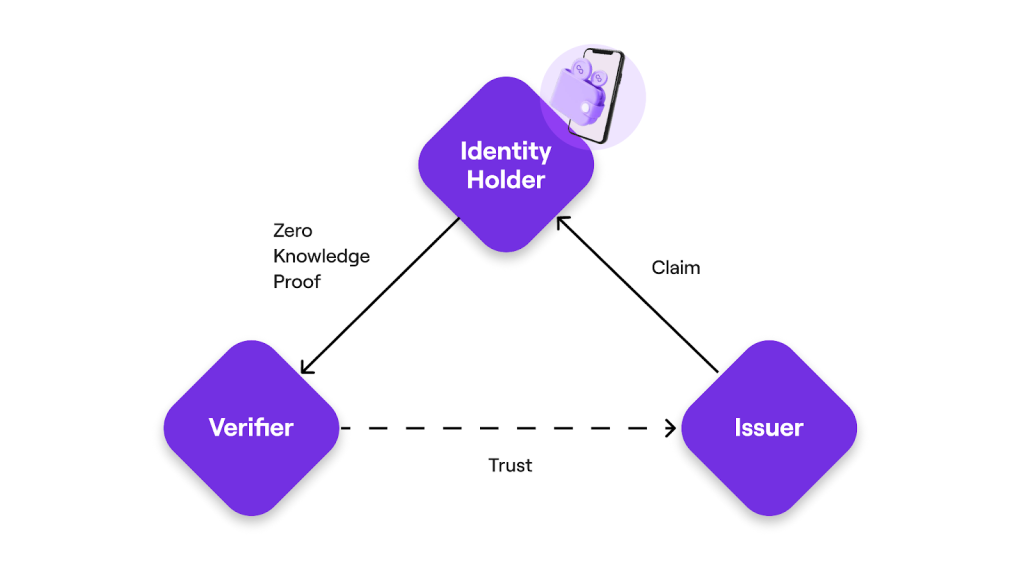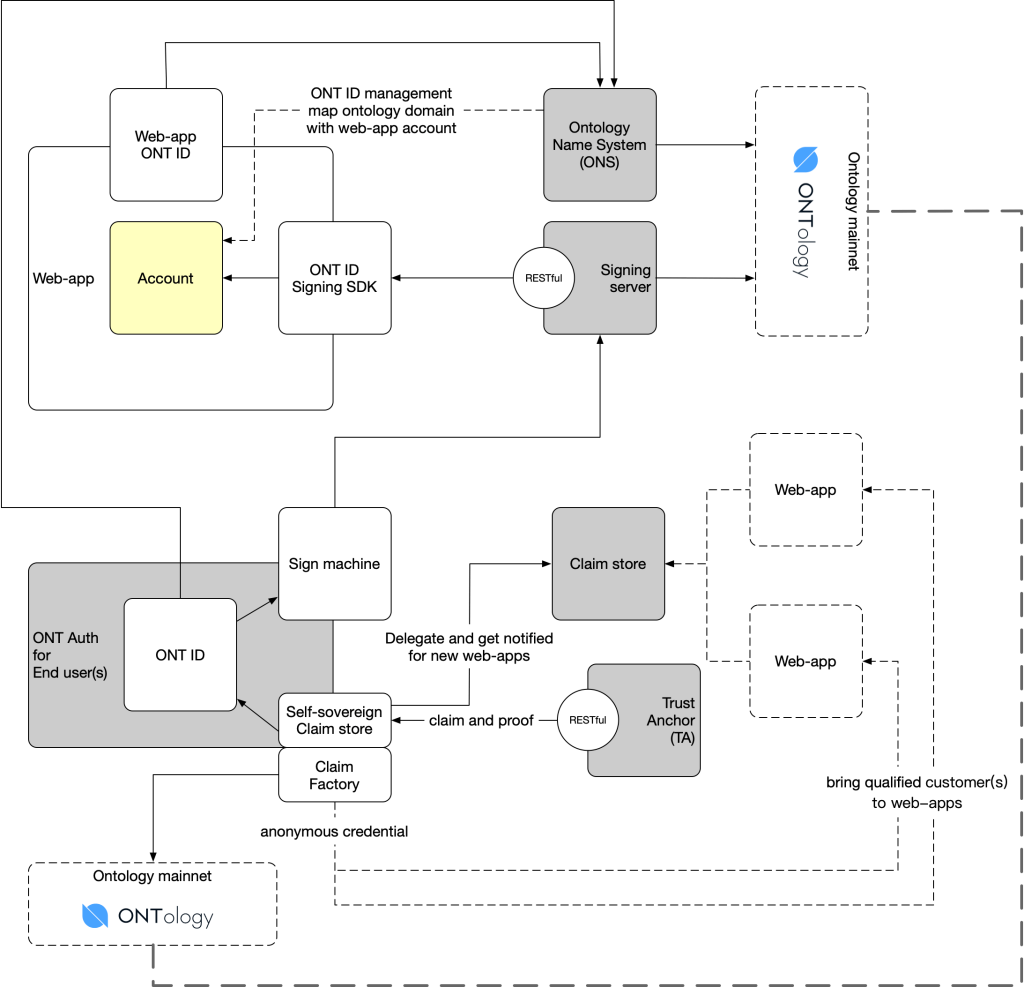Create Decentralized ID Without Coding In 5 Minutes
Create Decentralized ID Without Coding In 5 Minutes
The utilization of zero-knowledge proof in supporting a decentralized identity (DID) solution encounters challenges due to its inherent inability to share Personally Identifiable Information (PII), such as an individual’s name, social security number, or date of birth. Consequently, existing DID solutions like Polygon ID, Dock.io, ONT ID, Trinsic ID, and Oasis Privacy Layer rely on a network of trusted parties to act as DID issuers.

As a result, implementing a decentralized ID solution requires substantial effort. Current on-chain and off-chain solutions, such as those mentioned earlier, demand extensive coding and integration work. Individuals or entities wishing to participate in a trusted DID network, whether as issuers or verifiers, must integrate with new Software Development Kits (SDKs) and Application Programming Interfaces (APIs). Additionally, ID holders often need to download additional identification mobile apps.

To address these challenges, we introduce a straightforward on-chain solution that allows anyone to create their own DID solution without the need for coding or integration with existing DID systems. This redefines the concept of “decentralized identity,” as decentralized ID owners are not required to download any specific ID app.
You can create your DID solution on Mintnite using the following components:
- A Soulbound Token (SBT) smart contract with certified ownership via a digital certificate.
- A decentralized file storage network like IPFS for storing decentralized ID data.
- A blockchain supporting non-fungible tokens like ERC721. We support 26 different blockchains.
- A typical Web3 wallet such as MetaMask for storing the decentralized ID token.
Mintnite streamlines all these processes for you, eliminating the need for any development or integration work. Explore [Mintnite](https://mintnite.io) to initiate your decentralized ID journey.
How it Works
At the core of our decentralized identity solution lies an ERC721 smart contract responsible for issuing Soulbound Tokens (SBT). Each person’s decentralized ID is housed within an SBT token, functioning essentially as a non-fungible token (NFT). The distinctive feature of a soulbound token is its inability to be transferred to another holder, hence the term “soulbound.” The integrity of this DID smart contract hinges on having a verified owner. For instance, if the Canadian government aims to dispense decentralized IDs to its citizens, it is imperative that both the Canadian public and verifiers can confirm the contract’s ownership by the Canadian government. This verification is facilitated through a digital certificate issued by Ztamp, something similar to an SSL certificate.
Each decentralized ID is stored in a JSON file. In this file, Personally Identifiable Information (PII) is encrypted as a digital signature, signed by the wallet of the ID owner. This file is securely stored on a decentralized storage network, such as IPFS.
Verification of a decentralized ID is streamlined for verifiers, be it a private company or a bar, through the use of an ID verification web app on Mintnite. Simply by entering the contract address of the DID issuer, including the wallet address of the ID holder (via QR code scanning), and selecting the specific personal data to be verified, the web app reads the digital signature of the PII data stored in an SBT token. If the provided personal data matches the signature, the PII data is deemed authentic. This means that the decentralized ID owner only needs to reveal the PII data that they are willing to share, not their entire ID card or passport, for instance.
Every Data is Stored on Blockchain – Signed and Secured
No data is stored on our server or database because everything is stored on chain as digital signatures. This means we do not keep a copy of the PII data nor do we even know about it. It’s all between the DID issuer and the DID holder.
How to Create a Decentralized ID in 5 Minutes on a Blockchain
The video tutorial explains a step-by-step guide on how you can deploy a DID system on a blockchain.
The Importance of Verifying Smart Contract Ownership
Ensuring the ownership verification of smart contracts is crucial for several reasons. Foremost, it safeguards against potential scams where malicious actors could replicate a legitimate contract, assuming a false identity as the rightful owner. Consider a scenario where a bad actor duplicates the Canadian government’s Decentralized ID (DID) contract, issuing fraudulent DIDs. While some might argue that genuine contracts can be identified by their contract addresses, relying solely on this method is comparable to recognizing individuals solely by their bank account numbers or social security numbers— an impractical and cumbersome approach. Moreover, this approach presents challenges for legitimate owners looking to deploy new contracts, as it necessitates widespread remembrance of the new address. A simplified solution, such as a straightforward checkmark ✅, proves to be the most effective and user-friendly method.
The PII data that is currently supported
We currently support the following Personally Identifiable Information (PII).
- Legal name
- Date of birth
- National ID, social security, passport number, driver’s license number
- Are you above 18?
- Country
We aim to add more data points such as education credentials (degree, diploma), property ownership (vehicle registration number, land deeds), email address, phone number, residential address and more.
Free to Use
Our DID solution is free to use. So, we wish to see people actually bringing this solution to life and implementing it in real-world use cases.

